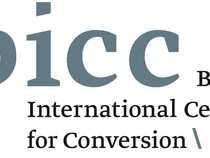Description
Exiled populations – who increasingly refer to themselves as diaspora communities – hold a strong stake in the fate of their countries of origin. In an increasingly interconnected world, they engage in 'long-distance politics' towards their homelands, send financial remittances and support social development in their communities of origin. Transnational diaspora networks have thus become global forces shaping the relationship between countries, regions and continents.
DIASPEACE is a multi-disciplinary research project that seeks to generate evidence-based and policy-relevant knowledge about the ways in which diasporas play into the dynamics of conflict and peace in their countries of origin. The empirical focus of the project is on the Horn of Africa – a region where decades of violent conflict have resulted in state collapse and the dispersal of more than two million people. The social, political and financial remittances towards this region are significant: in the case of Somalia, for example, it has been estimated that remittances exceed both development aid and export revenues. The project follows the activities of diaspora networks in Europe and in the Horn of Africa.
The distinctive added value of this project lies in the following five dimensions:
• Exploring a new inter-disciplinary field of social science research;
• Developing and testing a multi-sited methodology, which allows for cross-checking of data and a transnational approach to research;
• Taking careful account of the sensitivities of the topic at hand, consciously avoiding falling into either an idealised or a pessimistic approach to diaspora activism;
• Connecting the diaspora communities at grass-root levels with policy-makers and international actors at higher levels of the policy ladder and facilitating their cooperation;
• Drawing upon the existing networks of researchers which have been built over several years of research with diaspora communities.
The project will produce a wide range of deliverables, including working papers, articles in scientific journals and books, seminars and workshops, policy papers, an interactive data-base and a handbook/toolkit.
Diaspora organisations are explicitly invited to provide critical input and comment on the ongoing research. This can be done through the 'For diaspora organisations' window below. In the course of the project, a number of workshops will be organised to facilitate constructive dialogue between dispora groups and relevant civil society organisations, non-governmental organisations and state actors.
The members of the consortium come from five European countries and two international cooperation partner countries in the Horn of Africa, representing eight partner institutions:
- University of Jyväskylä (JYU), Finland
- Bonn International Center for Conversion (BICC), Germany
- Max Planck Institute for Social Anthropology (MPG), Germany
- International Peace Research Institute (PRIO), Norway
- African Diaspora Policy Centre (ADPC), The Netherlands
- Centro Studi di Politica Intenazionale (CeSPI), Italy
- The Forum for Social Studies (FSS), Ethiopia
- Academy for Peace and Development (APD), Somaliland
In addition, DIASPEACE will collaborate closely with another EC funded project called Involving Transnational Communities - Civil Society Forum on Conflict (INFOCON), which seeks to create a better understanding of how civil society organisations representing transnational communities can help preventing and resolving conflicts in Europe and the world.

